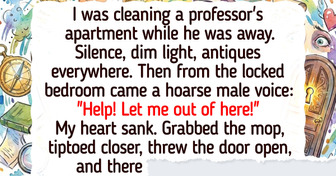I mean, of course not. Your dad's awful, maybe you should erase him too.
I Couldn’t Give My Baby My Mom’s Name, and Now My Dad’s Furious
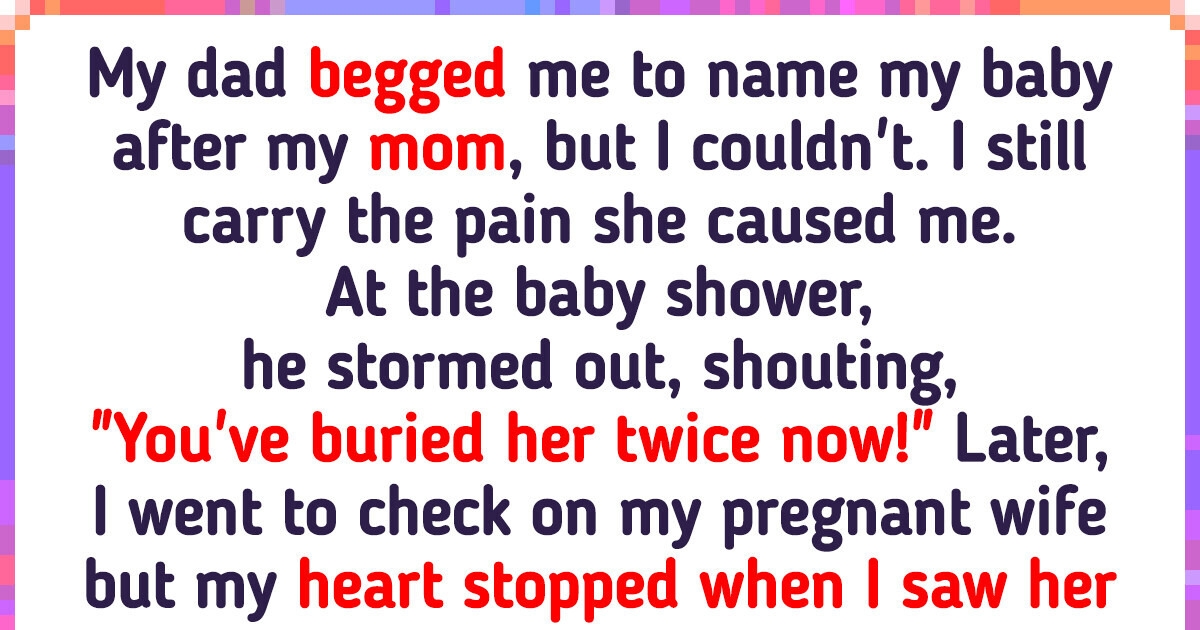
In every family, names carry stories and emotions. For Ali, the decision to name his newborn daughter was anything but simple. Pressed by his grieving father to name her after his late mother, Ali faced a heart-wrenching choice. The name represented not just tradition, but also the painful memories of his childhood and the complex legacy of his mother.
As he chose to stand by his decision, tensions flared, revealing deep-seated emotions and unresolved family issues. This is a story of love, loss, and the struggle to honor the past while embracing the future. Join us as we delve into Ali’s journey and the profound impact a single name can have on family bonds.
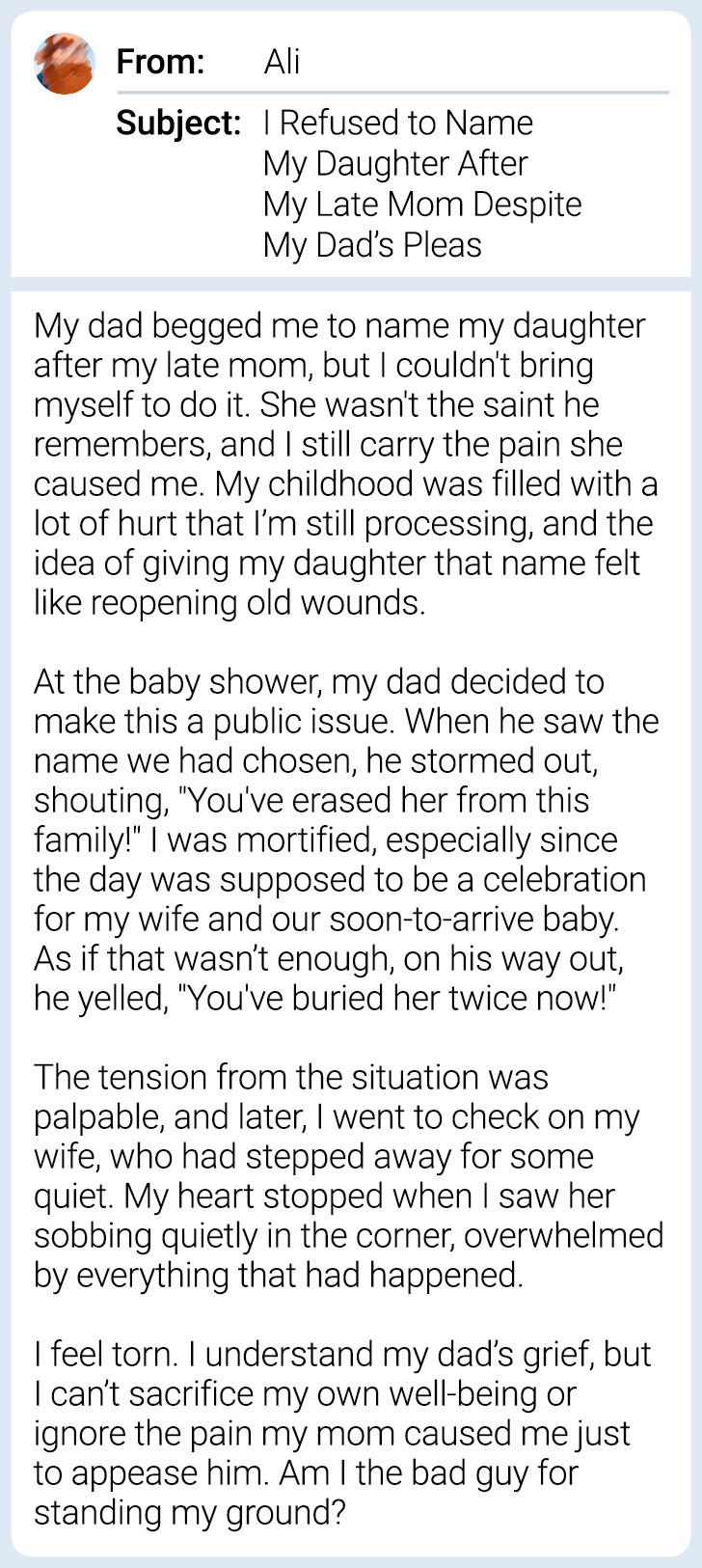
We want to start by acknowledging the difficult position you are in, Ali. It’s clear that you are grappling with a deeply personal and emotional decision, one that has caused a rift in your family. Naming a child is a significant act, often filled with meaning and tradition.
However, your feelings and experiences are valid, and it’s important to recognize that you have the right to make choices that align with your own emotional well-being. Your father’s grief is understandable, but it should not come at the expense of your own healing.
The Weight of Your Mother’s Legacy

The pain you experienced in your childhood is not something that should be underestimated. Your mother’s memory, as your father sees it, is likely very different from your own. It’s important to remember that you are not erasing her from the family by choosing a different name for your daughter.
Instead, you are honoring your own journey and the path to healing that you are on. Your mother’s actions have left a lasting impact on you, and it’s crucial that you are allowed to process those feelings in your own way.
The Public Nature of the Conflict

The way your father chose to express his disappointment at the baby shower was unfortunate and added unnecessary stress to an already emotional day. Public confrontations can be particularly challenging, especially when they involve family and are tied to sensitive issues. Your wife, who should have been able to enjoy the celebration, was instead left feeling overwhelmed and upset.
It’s important to address this with your father, not to blame him, but to help him understand the impact of his actions. This could be a step towards healing and finding a way forward.
Balancing Grief and Healing

Your father’s grief is real and should be acknowledged, but so is your own need for healing. It’s a delicate balance, and it’s understandable that you feel torn. You are not the bad guy for standing your ground.
In fact, it takes courage to prioritize your own emotional health and the well-being of your family. Your father may not see it this way now, but with time and open communication, he may come to understand your perspective.
The Importance of Communication
Open and honest communication is key in navigating this situation. It might be helpful to have a heartfelt conversation with your father, where you can express your feelings and the reasons behind your decision. This is not about justifying your choice, but about helping him understand the complexity of your emotions.
Encourage him to share his feelings as well, so that you can both work towards a place of mutual understanding and respect. This could be a difficult conversation, but it is necessary for healing and moving forward.
Finding a Compromise

While you should not feel pressured to name your daughter after your mother, there might be room for compromise. This could involve finding a way to honor your mother’s memory in another way, such as through a middle name or a special family tradition. The key is to find a solution that respects both your emotional needs and your father’s grief. This approach can help bridge the gap and bring your family closer together, rather than driving you apart.
Moving Forward With Empathy

Ultimately, this situation calls for empathy and understanding from all sides. Your father’s grief is valid, but so is your need to protect your emotional well-being. It’s important to remember that you are not alone in this.
Your wife, who was also affected by the incident, can be a source of support and strength. Together, you can work towards a resolution that honors your feelings and the love you have for your family. This journey may not be easy, but it is possible to find a path that leads to healing and understanding.
You are not the bad guy for standing your ground and making a decision that prioritizes your emotional health. Your father’s grief is real, but it should not overshadow your own experiences and the love you have for your daughter. By fostering open communication and seeking a compromise, you can work towards a resolution that respects everyone’s feelings. Remember, you are not alone in this, and with time and understanding, your family can come together to support each other and find peace.
While the conflict with Ali’s dad continues to simmer, another reader has reached out with a problem that hits close to home. She’s struggling with her friend’s choice of baby names, and it’s causing tension in their relationship. How do you handle a situation where you have strong feelings about someone else’s parenting choices? Stay tuned as we dive into this new story and offer advice on navigating these tricky waters.
Comments
Related Reads
My Fiancée Made Me Feel I’m Just Her Second Choice

12 Moments When Children Used Kindness to Silence Rude Adults
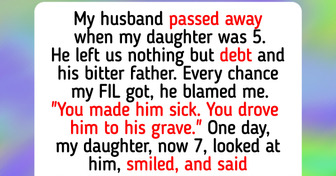
13 Work Stories That Prove Real Life Writes Better Comedy Than Any Script
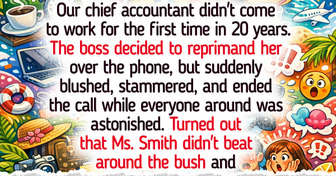
I Refused to Pay for Our Valentine’s Dinner—Then I Learned the Heartbreaking Truth

I Refused to Talk to My Parents After They Chose My Ex-Wife Over Me

I Refuse to Watch My Teenage Daughter Give Her Entire Salary to Her Boyfriend
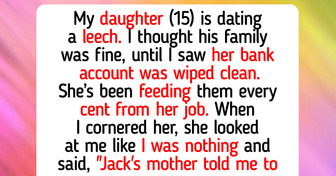
My Parents Told Me I’d Never Own a Home, Now They Want to Move In
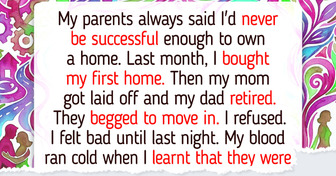
My Sister Ruined My Child-Free Wedding—So I Served Her Cold Revenge
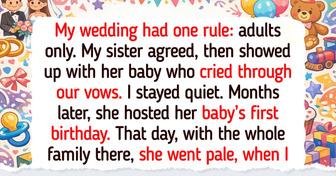
My MIL Ignored Our Rule and Bought My Son a Puppy, She Wasn’t Ready for My Surprise
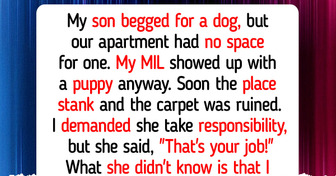
I Refused to Forgive My Estranged Dad After He Chose His Wife Over Me—And I Don’t Regret It
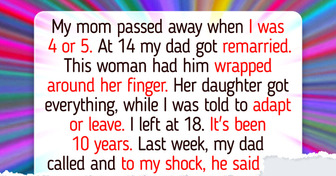
13 Times Stepparents Refused to Give Up on a Child Who Didn’t Want Them—Until One Moment Changed Everything

14 Stories From Cleaners That Are Wilder Than Any Movie Script
